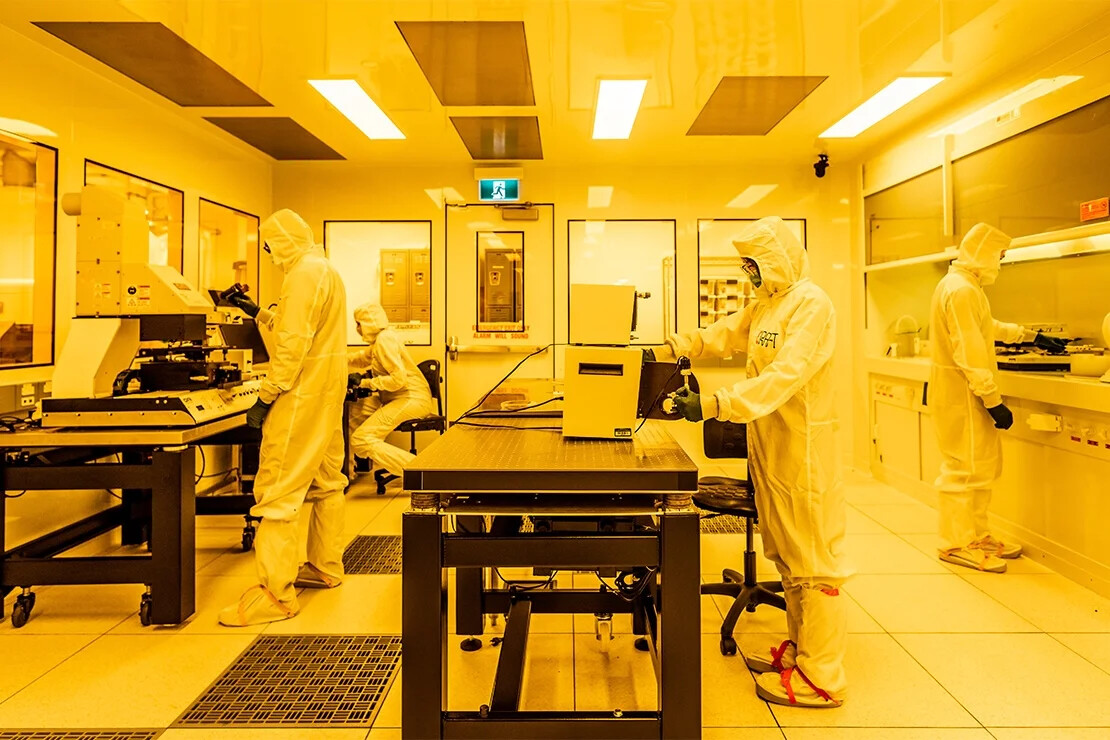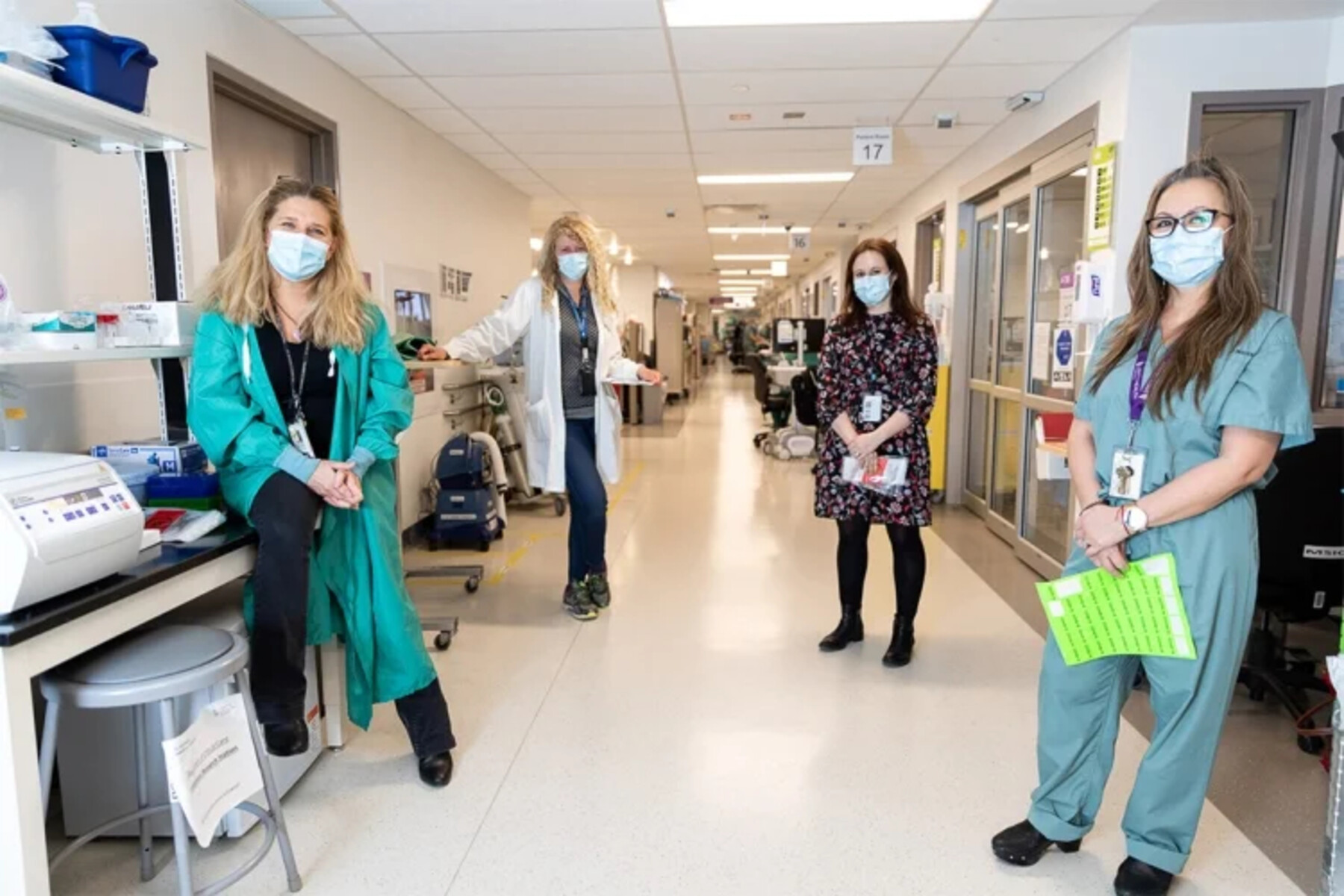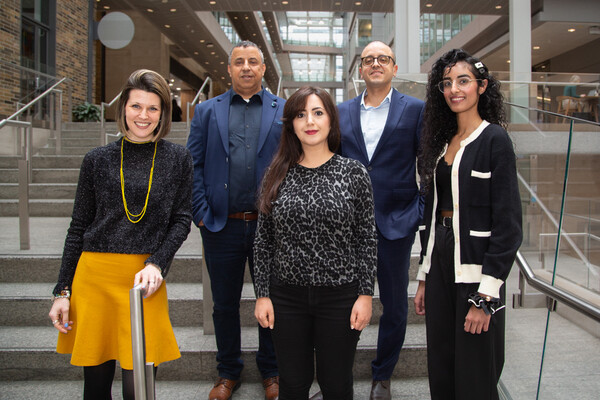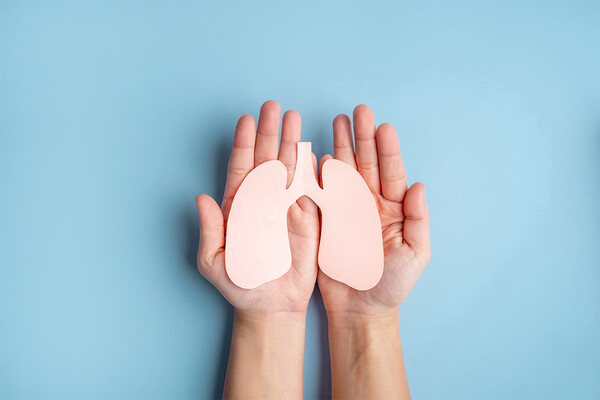Feb 14, 2024
Academic hospital network joins centre for research on microfluidic devices for human health
Students, Research, Faculty & Staff, Partnerships

Photo by Dahlia Katz
Researchers work in the Device Foundry, one of three facilities that are part of the Centre for Research and Applications in Fluidic Technologies



